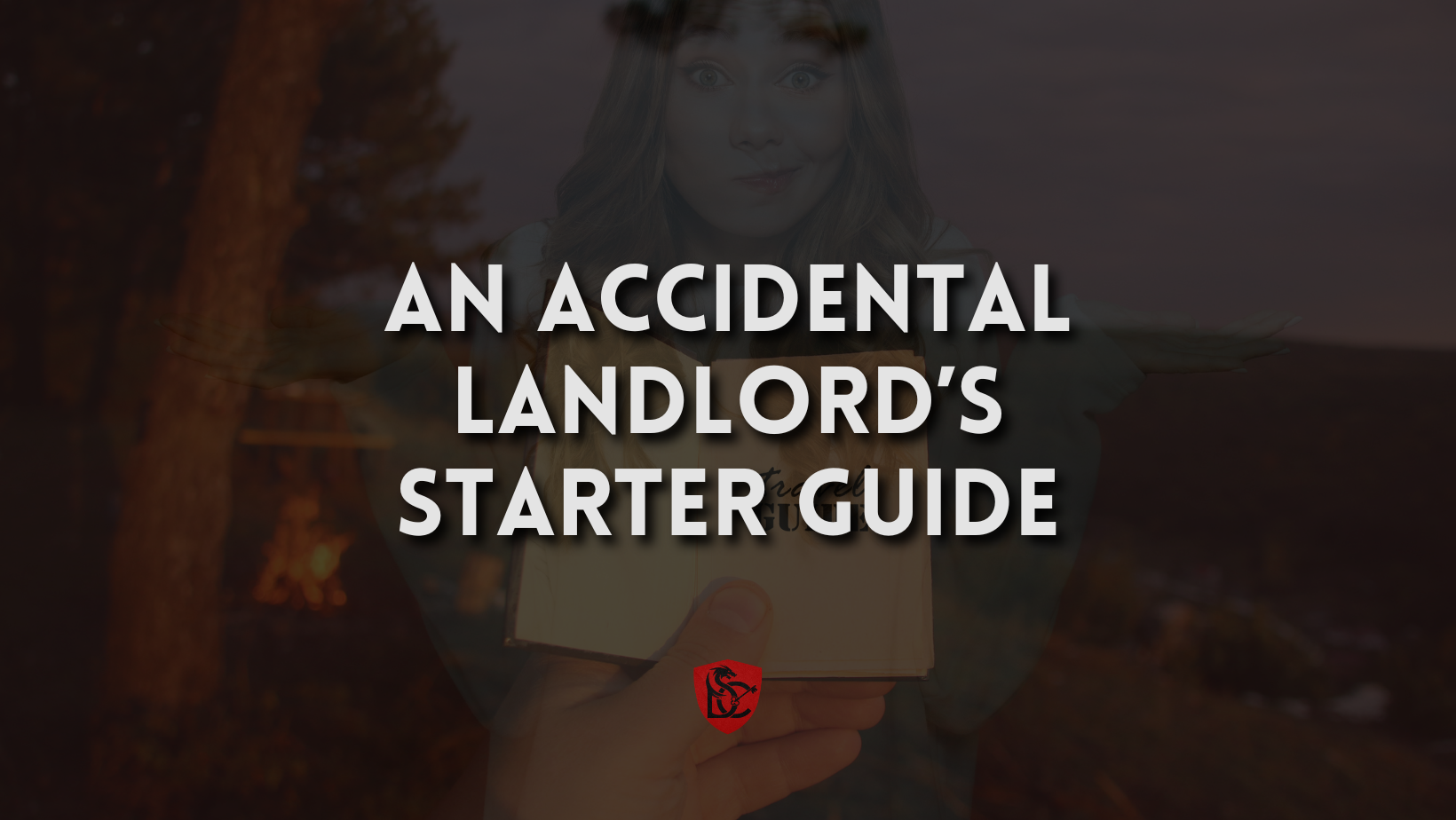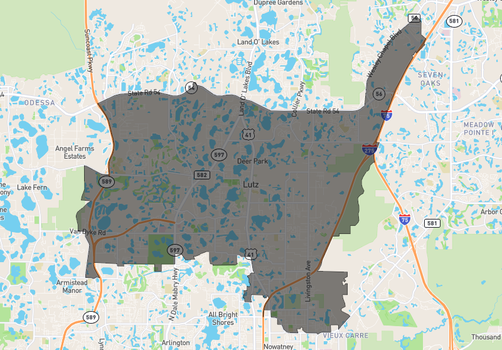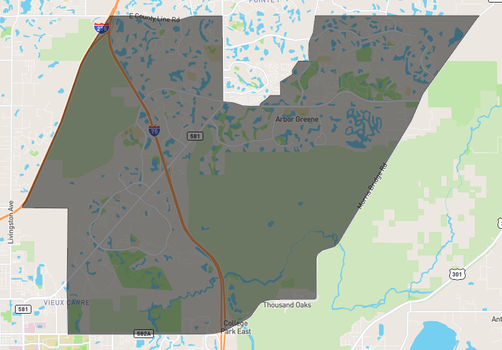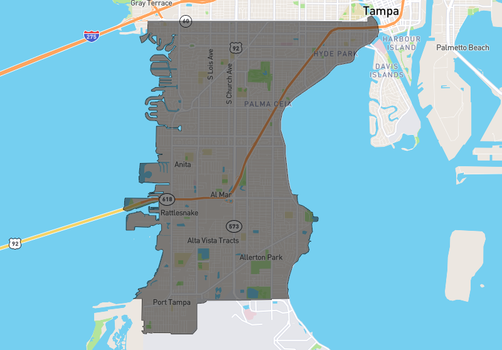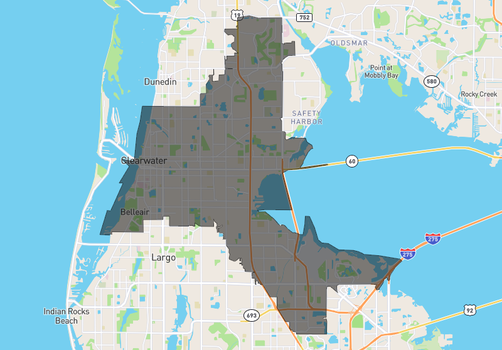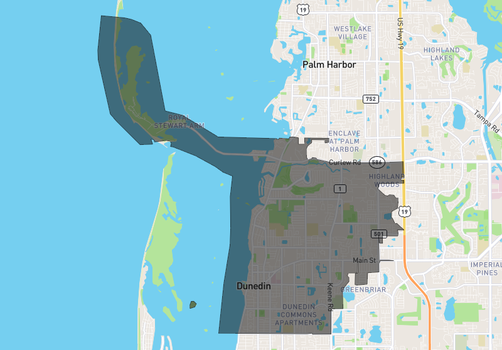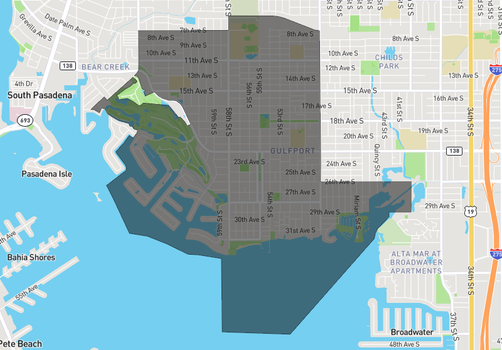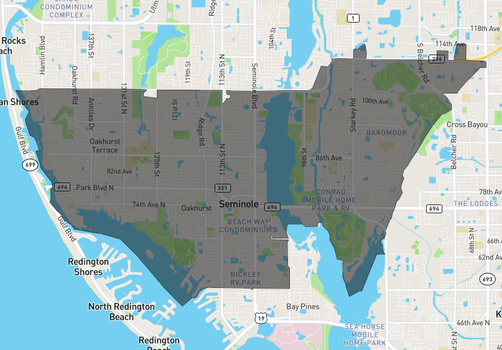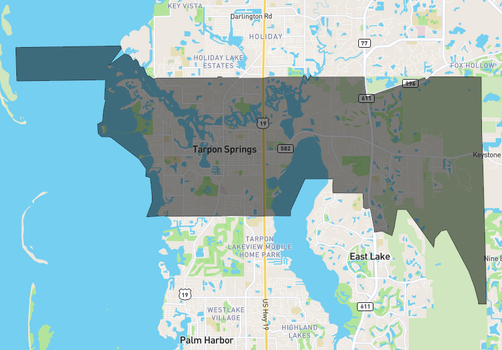~ 9 min read
So you never planned to be a landlord. Yet here you are – an accidental landlord. Maybe you had to relocate for a job and couldn't bear to sell your Florida home. Maybe rising interest rates mean you'd rather rent out your place than give up that sweet 3% mortgage. Or perhaps you inherited a family house. Whatever the reason, you woke up one day as a landlord by necessity, not by choice. And if you're feeling a bit overwhelmed, you're not alone.
I get calls and emails all the time from homeowners in Florida in the exact same boat. One day you're a homeowner, the next day you're dealing with tenants, leases, and late-night plumbing issues. “We're not sure if we should rent or sell our home... if you can tell us how much we could get in rent, it'll help our decision,” one family asked me recently.
This guide is for folks just like them – and you. Consider it a frank conversation over coffee with a friendly Florida realtor-investor (that's me) who's seen it all. I'm going to walk you through the basics – no sugar-coating, no fancy jargon, just practical advice from someone who's been around the block.
By the end of this guide, you'll have a handle on the key things accidental landlords in Florida need to know. We'll talk about the legal stuff (yes, you do need to know some laws, sorry!), setting the right rent and finding solid tenants (without getting burned by a tenant-from-hell), deciding whether to DIY or hire a property manager, dealing with maintenance realities (kiss those rose-colored glasses goodbye), and the money side – taxes, insurance, and making this whole thing worth your while. Sound good? Let's dive in.
Setting Rent and Screening Tenants
Now for the fun part (and by “fun,” I mean absolutely critical part): picking the right rent price and finding a good tenant. Do this right, and being a landlord is so much easier. Do it wrong, and you could be in for a world of pain. Let's break it down.
Setting the Rent: One of the first questions new landlords ask is, “How much can I rent my house for?” (Followed closely by, “Is that enough to cover my mortgage?”). The rental market in Florida can vary a lot by location and season. Don’t just pull a number out of thin air – or use your mortgage payment as the asking rent without checking the market. Research is your friend here. Look at listings for similar homes in your neighborhood or zip code – check Zillow, Trulia, Rentometer, or even Facebook housing groups to see what comparable properties are renting for right now. Pay attention to size, condition, and amenities (that new kitchen or pool might justify a bit more rent, for instance).
Be realistic and objective. I know you love your house and think it’s worth top dollar, but the market sets the rent, not your sentiment. If similar 3-bed, 2-bath homes in your area are going for around $2,000 a month, you’re not likely to get $2,500 just because you “need” it or because you spent a fortune on custom closets. Price it too high and you’ll hear crickets – the property will sit vacant, and a vacant property is money out of your pocket. Price it slightly under market and you might get a flood of interest and be able to choose a stellar tenant. I often tell accidental landlords: it’s better to get $100 less than you hoped for with a great tenant who pays on time, than to overprice it and end up with no rent coming in for months (or attract a desperate tenant with a sketchy background who is willing to overpay – red flag!).
If you’ve listed your rental and you’re not getting interest or applications after a couple weeks, that’s a signal. I saw a forum post by a first-time landlord basically asking, “First rental listing – when should I drop the rent?” The answer is usually: pretty soon. Generally, if two weeks pass with barely a nibble (and you’ve marketed the listing well), the price is probably too high. Don’t take it personally; adjust. A good rule of thumb is to drop in small increments (e.g., $50) and see if that sparks activity. Also consider timing – in Florida, the summer is peak moving season for families (school's out, new leases start); if you’re trying to rent in the middle of the school year or around the holidays, demand is lower and price might need to be more competitive to fill the place.
Screening Tenants: Okay, you’ve got inquiries coming in – great. Now, please, please screen your tenants carefully. This is where many accidental landlords get burned. They’ll get a nice couple inquiring, have a friendly chat, and go on gut feeling alone, handing over the keys without doing any homework on the tenants. Big mistake. Your mantra here is Trust, but verify. Actually, scratch that – verify, then trust once the lease is signed and they’ve proven themselves.
Here’s a straightforward screening process I recommend:
Rental Application: Have every adult who will live in the home fill out a written application. You can find generic rental application forms online or through property management software. The application should collect personal info (name, DOB, SSN), rental history, employment and income info, and ask if they have any criminal history or prior evictions (and make them explain if yes).
Credit and Background Checks: Run them. There are services like TransUnion SmartMove, Zillow Tenant Screening, or others that, for a reasonable fee, will give you a credit report and criminal/eviction background check on the applicant (usually you can have the applicant pay the fee as part of their application cost). Look at their credit history – do they pay bills on time or are there collections and late payments everywhere? A perfect credit score is rare, but you want to see that they generally meet obligations. An eviction on record is a huge red flag. Criminal history – use judgment and follow the law (HUD has guidelines on this; e.g., you generally shouldn’t blanket reject someone for an old minor offense, but a recent felony or crime involving property or violence could be a no-go). Importantly, be consistent – apply the same screening standards to everyone to avoid any discrimination claims.
Income and Employment Verification: The classic standard is income around 3 times the rent. So if rent is $2,000, you’d like to see at least $6,000 gross monthly income. This isn’t a hard law, but it’s a common-sense guideline so you know the rent is affordable for them. Ask for recent pay stubs or an offer letter if they’re relocating for a job. If self-employed, maybe tax returns or bank statements. Verify their employment by calling the employer (you can just say you’re verifying employment and salary for rental application purposes). It might feel awkward, but it’s normal business.
Landlord References: This one can be tricky, but it’s worth a shot. Ask for contact info for their previous landlord (preferably their most recent one, not their buddy who will pretend to be a landlord). When you call, ask straightforward questions: Did they pay rent on time? Any issues with noise or damage? Would you rent to them again? Listen not just to the words but the tone. Sometimes a hesitant reference says more than the words. Also, be aware the current landlord might give a rosy review just to get rid of a problem tenant – that's why talking to a prior landlord (if possible) can be more honest.
Gut Check (with boundaries): After all the data, do a gut check. If something is screaming “this doesn’t feel right,” think hard. But be careful – your gut feeling cannot violate fair housing laws. You might get a gut feeling because, say, they reveal something in conversation – like they mentioned suing their last landlord or you notice they bad-mouthed every prior landlord they had. Those could be legitimate concerns. Just ensure you’re not making decisions on the basis of protected characteristics (race, religion, etc.). Document your reasons for approval/denial in case it’s ever questioned.
A few more screening tips: Always meet the prospective tenant in person (or via video call if you’re remote) before signing anything. If they can’t meet or tour the property (even virtually), that’s often a red flag. Trust how they communicate – if someone is consistently flaky or takes days to respond during the application process, imagine how they might be when rent is due. Also, decide ahead of time your policy on things like pets, smoking, and occupancy limits. Florida landlords often charge a pet fee or pet deposit if allowing pets – that’s fine, just disclose it. If you don’t want smokers, state it clearly (you can ban smoking in your unit, that’s legal).
Importantly, put all agreed terms in the lease. If you told Joe Tenant that he can paint the bedroom walls blue, put it in writing (and maybe add that he must repaint to neutral at move-out, etc.). If Jane Tenant has a dog and you approved it, the lease should say Fido the goldendoodle is allowed with a $300 pet fee and any damage caused is tenant’s responsibility. Don’t rely on verbal side promises.
Lastly, don’t rush. It’s better to take a little longer to find the right tenant than to hurry and regret it. A bad tenant can cause you endless stress, cost thousands in damage or lost rent, and even land you in legal trouble. A great tenant, on the other hand, will treat your property well and pay like clockwork. They’re worth the diligence to find.
Self-Managing vs Hiring Help
Now let's talk about another big question: Should you manage the property yourself or hire a property manager? As an accidental landlord, you might not have anticipated this decision. Maybe you figured, “How hard can it be? I just find a tenant, collect rent, and handle a few fixes.” That can certainly work – many folks self-manage one or two properties successfully. But it’s not for everyone, and it’s okay to admit if you need help. Let’s weigh the options in a frank way.
Self-Managing (DIY Landlording):
You might choose to self-manage if you live nearby, have the time, and want to save money. The obvious advantage is you keep the property management fee in your pocket (typically in Florida, a management company might charge around 8–10% of the monthly rent, plus maybe half or a full month’s rent as a leasing fee when they find a new tenant). On a $2000/month rental, that could be $200 a month you're saving, which is not nothing. You also have complete control – you’ll choose the tenant (though a good PM will consult you on this anyway), you’ll know firsthand what's going on with the property, and you can often respond faster since you only manage your own place, not a whole portfolio of homes.
However, be realistic about the commitment. Self-managing means you’re on duty 24/7. If the A/C stops working on a Sunday night, the tenant is calling you. If the toilet is overflowing at 6 AM, guess who gets that call. You have to either be handy yourself or have a Rolodex of reliable contractors and repair people. It also means handling the uncomfortable stuff: chasing late rent, posting notice on someone’s door if they’re way behind or violating the lease, and yes, potentially filing evictions and going to court. Are you prepared to be firm with a tenant who’s telling you a sob story? Can you separate business and emotions? These are questions to honestly ask yourself.
Some tips if you self-manage:
Educate Yourself: You don’t need a PhD in property management, but do read up on Florida landlord-tenant law (you’re already doing that here – bravo!). Maybe take a local landlord class if available, or join a landlord association in your area. Tap into online forums (there’s a wealth of knowledge on BiggerPockets and other sites from experienced landlords).
Systems and Tools: Use modern tools to help. There are online platforms (many with free versions) for collecting rent electronically, managing maintenance requests, and even screening tenants. For example, Zillow Rental Manager, Cozy/Apartments.com, or Buildium can make your life easier so you’re not running to the bank to deposit checks or keeping sticky notes of “fix sink on Saturday”.
Set Boundaries: Just because you’re self-managing doesn’t mean you should be a doormat. Be professional. Have official business hours for non-emergencies. You can let tenants text you for convenience, but if someone is blowing up your phone at midnight for a non-emergency, that’s not okay. Make it clear in the lease how to request repairs and what constitutes an emergency versus something that will be handled in 24-48 hours.
Backup Plan: If you go on vacation or have a day job that takes you out of town, have a backup person or plan in place for those times. Maybe a friend or a local handyman willing to be on call (you can compensate them or at least warn your tenant that “from X to Y dates, contact so-and-so for urgent issues”). Nothing worse than being on a cruise with no signal while your rental’s water heater bursts.
Hiring a Professional Property Manager:
If all that self-managing sounds like a bit much, there is zero shame in outsourcing. A good property manager can be worth their weight in gold – or at least in saved sanity. The obvious downside is cost. That 8-10% of rent and leasing fee will eat into your cash flow. If your margin was slim to begin with, that can make your rental closer to break-even or even negative monthly income. But think of it as paying for a service – like an insurance policy against headaches.
Here are some benefits of a property manager (PM):
They know the law and stay up to date on any changes. It's literally their job. So you are less likely to screw up a legal procedure because the PM will handle notices, evictions, etc., correctly.
They have systems in place. Most use software for collecting rent (tenants often get a portal to pay online – and many tenants prefer that to mailing a check). They keep accounting of income/expenses, which makes your life easier at tax time (you’ll usually get an annual statement).
They have a network of trusted vendors. Need a plumber at 2 AM? They probably have one. Need a lawn mowed or the house re-keyed? They’ve got contacts, often with negotiated rates since they give these vendors repeat business. And they coordinate repairs for you.
They handle the tough conversations. Late rent? They’ll chase it. Rule violation? They’ll serve the notice and talk to the tenant. It puts a buffer between you and the tenant, which can be very helpful if you’re the type that finds it hard to lay down the law. You get to be the nice owner in the background, and the PM is the “bad cop” when needed.
They can often rent the property out faster. They know how to advertise, can get on MLS if they’re licensed Realtors (most are), and know the market rates. They’ll also schedule showings, screen tenants (with your final approval typically), and handle the lease signing and move-in process.
However, not all PMs are created equal. If you decide to go this route, do your homework:
Get referrals or read reviews. If you know other landlords, ask who they use. Check Google or Yelp reviews of the management company. Look for red flags like multiple complaints of poor communication or excessive fees.
Interview the PM like you would an employee. What is their fee structure? (Is it just a flat % and leasing fee, or do they have other fees like markup on maintenance or annual admin fees?) How do they handle after-hours emergencies? How many properties or clients do they handle per manager (are they overloaded)? Are they local and do they know your area well? How do they determine rent price (they should be doing a comparative market analysis)?
Ask how they handle evictions and if they’ve had to do many. A solid PM will have efficient processes for that (and usually a preferred attorney to handle filings if it gets that far).
Make sure they know how to treat tenants well too. Happy tenants = longer staying tenants = less turnover costs for you. You want a PM who is firm but fair, and responsive to tenant concerns, because that ultimately protects your property and income.
One more middle-ground option: some landlords hire a property manager just to find and place a tenant (for a one-time fee), and then self-manage from there. For example, you might pay 50% or 100% of one month’s rent as a commission for the PM to market the property, screen applicants, and get the lease signed. Then you take over day-to-day management. This can be a good hybrid if you are okay handling maintenance and tenant interaction but feel unsure about the leasing process or don’t have time for showings. Many real estate agents also offer tenant placement services if you ask.
In the end, it comes down to your bandwidth, interest, and comfort level. If you have one condo down the road from you and plenty of free time, give self-managing a shot. If you have a single-family home across the state or you’re already juggling a million responsibilities, hiring help might save you a ton of stress and potentially money (through avoiding mistakes). Remember, there’s no wrong decision – just be honest with yourself about what you can handle.
Maintenance, Repairs, and Reality Checks
Alright, now let’s talk about the nuts and bolts of owning a rental: keeping the property in one piece and your sanity intact. This is where the rubber meets the road (or the toilet meets the wrench, as it were). Many new landlords imagine that their tenants will treat their home exactly the way they did. I hate to burst that bubble, but... they won’t. This is one of those "tell it like it is" moments. Even good tenants will cause wear and tear. And things will break – often at the worst times. Accepting this now is important.
Expect Wear and Tear: Florida’s climate is harsh on houses, and normal life is harsh on houses too. Paint will get scuffed, carpet will eventually get stained or worn, appliances have a limited lifespan. The home you get back won’t be in identical condition to when you handed it over – that's why you collected a security deposit, but that deposit isn't for normal wear and tear. Legally and fairly, you can't charge a tenant for things like minor nail holes, a few carpet stains, or worn-out appliance parts that died of old age. Those are your costs of doing business. If you go into landlording thinking every little scratch is the tenant’s fault and they’ll pay for it, you’re going to have conflict. A seasoned landlord friend once told me, “Treat it like a business – you’ll have operating expenses, so budget for them. Don’t treat it like your baby that someone messed up.” That mindset shift is key for accidental landlords who have a lot of emotional attachment to their home.
Maintenance Musts: Certain things in Florida rentals just need routine attention. For example, air conditioning – I keep harping on A/C because in Florida, A/C is not a luxury, it’s life support. I recommend getting the HVAC serviced at least once a year (some landlords do it every six months) to keep it running well. You can make it a lease term that tenants change the filters every month or two (and even provide them filters or sign them up for a filter delivery service to make sure it happens). Clogged A/C filters cause systems to freeze and fail – a little preventive measure goes a long way.
Pest control is another. Florida is buggy – roaches, ants, termites, you name it. Decide if you will provide periodic pest control service or if the tenant is responsible for keeping the place pest-free. Often, for single-family homes, leases make pest control the tenant’s duty (like buying bug spray or notifying if there’s an issue), except termite treatments or big infestations which are usually on the owner. For multi-family or condos, landlords often handle it. Either way, ensure the property is handed over clean and pest-free, and address any pest issues quickly – a small ant problem can turn big if ignored.
Landscaping and Lawn: Does your property have a yard or pool? Figure out who’s maintaining those. Many landlords of single-family homes have the tenant take care of lawn mowing and basic yard upkeep – but spell that out in the lease (and maybe leave them the tools or contacts for a lawn service). If you’re picky about your lawn or have an HOA that will fine if grass gets too high, you might want to include lawn service in the rent. It might cost you, but at least you know it’s done. Same with a pool – unless the tenant is a pool whiz, it might be worth hiring a pool service and including that in the rent or as a required fee. Nothing worse than coming back to a green, algae-filled swamp that used to be your pool.
Handle Repairs Promptly: When a tenant reports a repair, jump on it. Not only is it your legal duty for many things, it’s just good business. A minor leak can become a major flood if not fixed. A loose railing can cause an injury if left alone. Remember, you're not just dealing with a property, you're dealing with people’s home and safety. Quick response goes a long way in building goodwill, too. A tenant who sees that you are attentive and quick to fix issues is more likely to treat your property with respect and more likely to renew their lease, meaning stable rental income for you.
That said, also set some expectations with tenants for minor issues. For example, if a light bulb burns out, that’s on them to replace (usually leases say tenants handle minor maintenance under a certain dollar amount). If they clog the toilet with something they shouldn’t have flushed, that plumbing bill might be on them. Use common sense and make sure your lease covers these scenarios (many standard leases do). But when in doubt, err on the side of taking care of your property. I've seen landlords get into petty battles over $50 fixes and end up with a tenant who’s now bitter and less cooperative. Not worth it.
Emergency Plan: Have a plan for emergencies – both for you and communicated to the tenant. They should have a number to call 24/7 (whether it’s you, your PM, or a maintenance line). If you’re self-managing, and you know you’re going to be unreachable (like on a flight or out of the country), let the tenant know and give them an alternate contact for urgent issues. Also, make sure your tenants know where the main water shutoff is, how to turn off the electrical breaker, etc. If a pipe bursts, you want them to know how to minimize damage while waiting for help.
Document the Property Condition: This is more of a move-in/move-out tip, but it ties to maintenance. Before the tenant moves in, do a detailed walkthrough with photos (or even video) to document condition. Have the tenant sign an inspection form noting any pre-existing issues. This avoids disputes later because you both have a record. Similarly, when they move out, document everything again. This way, if you need to withhold part of the deposit for a broken window or giant hole in the wall, you have evidence that it wasn’t there before.
Reality Check – It’s a Business: Here’s the reality check part: owning a rental isn’t 100% passive income. There will be months where it feels like a part-time job, especially if something big goes wrong. And there will be times you have to spend money on your property with no immediate return – new water heater, fixing a leak, replacing a rusted out fence gate, etc. That’s normal. Budget for it. A common rule some investors use is setting aside about 10% of the monthly rent for maintenance reserves, or a flat amount like $50-100 per month on a newer home (more if your property is older). Some also use the "1% rule" (budget 1% of the property value per year for maintenance) – which on a $300,000 house would be $3,000/year. It’s not exact science, but the point is to save a cushion from your rent income for these expenses. If you don’t use it all in a given year, great – roll it over because eventually something pricey will come up (roof, HVAC, etc.).
Also, be prepared mentally that tenants may not report minor issues right away, or at all. They might live with a dripping faucet and then when they move out you discover a cabinet full of mold. Try to do at least one check-in visit every few months or mid-lease (with proper notice) – even if it’s just replacing A/C filters or testing smoke detectors – so you can catch maintenance issues early. Just don’t abuse that right of entry; keep it reasonable.
To sum up this section: treat your rental property like the investment it is. Protect it through good maintenance, but also accept a bit of wear as the cost of doing business. If you go in with eyes open about the upkeep, you’ll avoid the common accidental-landlord heartbreak of “They ruined my beautiful home!” It’s not ruined – it’s just been lived in. Almost everything is fixable, especially when you’ve budgeted and prepared.
Taxes, Money, and Long-Term
Last but certainly not least – let’s talk about the money side of being an accidental landlord. You’re doing this to improve your financial situation (or at least not wreck it), after all. Being a landlord has some tax benefits and financial implications you should understand, and there are some Florida-specific money matters to consider too.
Rental Income and Taxes: The rent you collect is income, yes – but the good news is, you get to deduct a lot of expenses against that income before Uncle Sam takes a cut. Every year, you'll file a Schedule E on your federal tax return for rental income. You’ll report the rent you received, and you’ll also report expenses like:
Property taxes
Landlord insurance premiums
Mortgage interest (a big one)
Repairs and maintenance costs (from replacing a door knob to fixing a leak – all deductible)
Property management fees (if you have a PM)
Homeowners association dues, if applicable
Utilities you pay for (if you include water or electricity in the rent, for example)
Depreciation: This is a jewel. The IRS lets you deduct the “depreciation” of the structure’s value over 27.5 years. In simple terms, if the house (excluding land) is valued at, say, $275,000, you can deduct about $10,000 each year as a paper expense – even if it’s actually going up in value. This often makes your rental show a taxable loss on paper or very little income, even if it's cash-flow positive, especially in the early years when your mortgage interest is high. (Depreciation can be recaptured or taxed later when you sell, but if you do everything right, you might defer or avoid some of that – more on that in a sec.)
All these deductions mean you shouldn’t panic that “Oh no, I’m going to pay income tax on this rent and it’ll push me into a higher bracket!” Usually, once you deduct everything, the taxable profit is minimal or nil in the beginning. That said, do keep good records. Save receipts for repairs, keep track of mileage if you drive to the property for inspections or repairs (yes, you can deduct mileage for landlord-related travel). If you end up making significant net income from the rent (hey, good for you), set aside some of that for taxes or talk to a CPA about quarterly estimated tax payments.
Homestead Exemption and Property Taxes: If this was your primary home in Florida, you likely had a homestead exemption (which knocks $50,000 off your assessed value for property tax calculations, saving a few hundred bucks in taxes, depending on your tax rates) and you benefited from the Save Our Homes cap that limits how much your assessed value can go up each year. Once you turn it into a rental, you are supposed to notify the property appraiser that it’s no longer your primary residence, and you’ll lose that homestead status in the next tax year. What does that mean? Expect your property taxes to jump up in the following year, potentially significantly if you were in the home a long time and market values grew faster than your capped assessments. Budget for that. Many accidental landlords forget about this and then get a hefty tax bill surprise. For example, maybe you were paying $2,500/year in taxes with homestead; without it, it could be $3,500 or more, depending on your county and how under-assessed you were. It varies, but just be aware.
Insurance Adjustments: You can’t keep your normal homeowner’s insurance once the home is a rental. You need to switch to a landlord or “dwelling fire” policy. These policies are similar in cost, maybe a bit more, but they are tailored for non-owner-occupied homes (and required by your lender typically once you move out). Talk to your insurance agent about this; do it promptly because if you have a claim and the insurance finds out it's not owner-occupied as your policy stated, you could have coverage issues. Also consider requiring your tenant to carry renters insurance (you can put that in the lease). Renters insurance is cheap (like $150-200 a year) and it covers the tenant’s personal belongings and liability. It can prevent scenarios where the tenant’s dog bites someone or their candle starts a fire and suddenly people are looking at you – renters insurance would provide some coverage for the tenant’s responsibility. It also might put them in a hotel if the home becomes uninhabitable due to something like a fire or hurricane damage, etc. It’s not legally mandated, but it’s a smart condition to have.
Plan for Vacancies: In the best case, your property will be rented continuously, but life isn’t always best case. Maybe your first tenant only stays a year and you have a month or two gap before the next one. That’s lost income. You should be prepared for at least a few weeks of vacancy every year or two (sometimes more). A common rule is to account for something like 5% vacancy rate in your budgeting. That means, essentially, one month vacant every 20 months. You might do better, but you might also have a longer vacancy if the market is slow or you have to do repairs between tenants. The key is: don’t spend every dollar of that rent assuming it’s guaranteed forever. Have a cushion to cover the mortgage during vacancies.
Long-Term Outlook – Keep or Sell? Now, since you’re accidental landlords, some of you might be thinking, “We’ll just rent it for a year or two and then sell when the market improves,” while others might be considering, “Hey, maybe I’ll keep this as an investment indefinitely.” Either approach can work; just plan for it.
If you think you might sell in a couple years, be very mindful of the Capital Gains Tax Exclusion for primary homes. Here’s the deal: If it was your primary residence for at least 2 of the last 5 years, you can sell and not pay capital gains tax on the profit (up to $250k profit if single, $500k if married). After 3 years of being a rental (i.e., you’re now beyond that 2-out-of-5 window), you start to lose that exclusion. An example: You lived in it 2 years, rent it for 3 years, then sell – you still qualify. But rent 4 years, now you’ve only lived in 2 of last 6, which is no good (unless you moved back in for a year to make it 3 of last 5, but that’s another strategy). I won’t dive too deep, but talk to a tax advisor about this if the home has gained a lot of value. It could be worth selling before that exclusion window closes. Or, if you missed it, there are other routes like a 1031 exchange (where you sell a rental and buy another rental to defer taxes). Just have a strategy so you’re not caught off guard by a tax bill.
On the other hand, if you find landlording isn’t so bad and you want to keep it long-term, treat this like the start of your real estate investment journey. Think about the long game: Your tenant is paying down your mortgage, your property (hopefully) is rising in value over the years, and rents generally go up over time as well. In 5 or 10 years, you might have significant equity. Some investors at that point refinance or get a home equity loan on the rental to buy another property. Others just enjoy increasing cash flow once the mortgage is smaller relative to rent. It can be a path to wealth – many a Florida landlord started accidentally and ended up intentionally growing a portfolio.
That said, long term landlording means long-term responsibilities: periodically you’ll have to replace big ticket items (roof, AC, appliances). Plan for those capital expenditures. Think about setting aside a portion of rent for a capital expense fund. Also, as you raise rent over the years, keep an eye on the market and remain a fair landlord – raising a long-term tenant’s rent modestly and consistently is usually better than hitting them with a huge hike out of the blue. Good tenants will stay for years if they feel valued and the home is cared for, and a long-term tenancy saves you money in turnover costs.
The Money Mindset: One more tip: keep your rental finances separate from your personal. Open a dedicated checking account for rent and expenses. It makes everything easier to track and looks more professional. Also, consider consulting with a CPA who understands rental property for your taxes, at least the first year. They can help ensure you’re taking advantage of all deductions (like a portion of any travel to the property, home office use if you manage it yourself, etc.) and advise on depreciation strategy.
And remember, cash flow (monthly profit) might be slim or even negative in year one if you had to, say, replace an appliance and pay a property manager and cover a vacancy. Don’t be discouraged. Look at the bigger picture: part of your “return” is that your mortgage principal is being paid down by the tenant and your property likely appreciated (especially in Florida’s historically strong markets). Sometimes accidental landlords think, “This is pointless, I only netted a thousand bucks this year after expenses!” But then realize their mortgage balance dropped by $3k and their home’s value went up 5%, which is another $15k gain on paper. Suddenly that doesn’t look so bad. Real estate is usually a slow wealth builder, not a quick cash cow – but it’s one of the few investments where someone else pays off the asset for you. Kinda cool, right?





